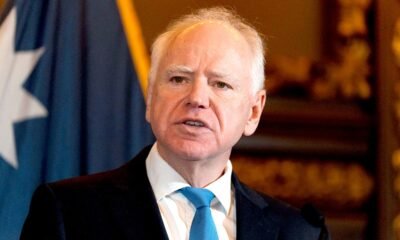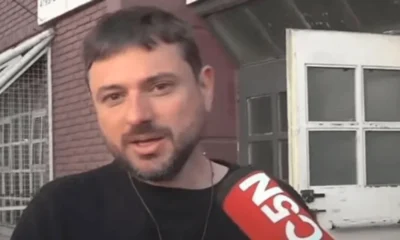INTERNACIONAL
ICE makes major arrest after Soros-backed prosecutor made controversial plea deal

Immigration and Customs Enforcement and Virginia State Police arrested an illegal immigrant after he was released as a result of a plea deal made by the Fairfax County Commonwealth Attorney’s Office.
Guatemalan national Wilmer Osmany Ramos-Giron, 34, faced numerous felony charges in January, including abduction by force, assault on a family member and felony strangulation causing injury to a Virginia woman, according to ICE, which has Ramos-Giron in custody.
Ramos-Giron spent only two months in an adult detention center in Fairfax County.
The county attorney’s office, led by Democrat Steve Descano, arranged a plea deal dropping Ramos-Giron’s charges to misdemeanors. Ramos-Giron would have faced up to 16 years behind bars on the felony charges if convicted, according to ABC 7.
DEM PROSECUTOR LETS OFF ILLEGAL IMMIGRANT CHARGED WITH STRANGULATION, KIDNAPPING
Steve Descano, the commonwealth’s attorney in Fairfax County, Va., speaks at an event at the Center for American Progress about Virginia’s newly elected progressive prosecutors Dec. 17, 2019. (Getty Images)
The outlet reported that even though the county attorney’s office said the plea deal was what the victim wanted, the victim said that’s not true. Ramos-Giron was deported two other times but found his way back into the U.S. despite being convicted in a federal gun case. But it’s not clear when he returned to the country, according to ICE.
Republican Gov. Glenn Youngkin’s office praised the April 24 arrest.
«It’s disappointing that the Fairfax Commonwealth Attorney’s Office has been more concerned about shielding dangerous illegal immigrants than ensuring the safety of Virginians,» Peter Finocchio, Youngkin’s press secretary, told Fox News Digital in a statement.
«Fortunately, Wilmer Osmany Ramos-Giron will no longer pose a threat to Virginia families, thanks to brave federal and state law enforcement heroes.»
Descano’s campaign received over $627,000 between 2019 and 2023 from the Justice and Public Safety PAC, according to the Virginia Public Access Project. Fox News Digital previously reported that a large majority of the super PAC’s funding came from liberal billionaire George Soros.
ICE NABS MORE THAN 425 MIGRANT CRIMINALS IN VIRGINIA, GOV. YOUNGKIN SAYS

Virginia Gov. Glenn Youngkin addresses a crowd during an early voting rally Sept. 21, 2023, in Petersburg, Va. (AP Photo/Steve Helber, File)
Fairfax County District Attorney Steve Descano, a Democrat, has had a clear policy against wanting to enforce federal immigration laws and has a history of not complying with many ICE detainers, ABC 7 reported.
«Wilmer Ramos-Giron represents a significant threat to our Virginia residents,» said Russell Hott, who directs the ICE Enforcement and Removal Operations Washington, D.C., field office.
«He has displayed a blatant disregard for our immigration laws and, more importantly, for the safety and well-being of our community. He is a violent and recidivist threat to public safety that ICE Washington, D.C., cannot tolerate. Regardless of the obstacles placed in our way, we remain committed to prioritizing public safety. The men and women of ICE Washington, D.C., will continue to arrest and remove criminal alien threats from our Washington, D.C., and Virginia neighborhoods and ensure their victims receive the justice they so rightly deserve.»
ICE TOUTS RECORD-BREAKING IMMIGRATION ENFORCEMENT DURING TRUMP’S FIRST 100 DAYS
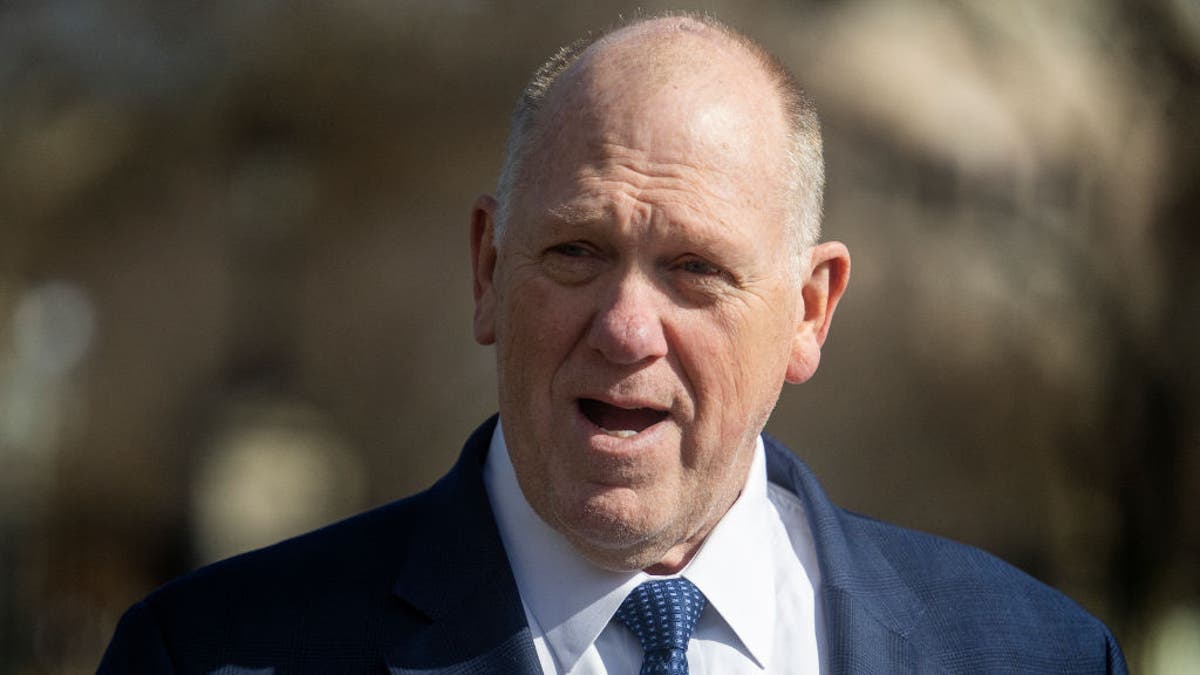
White House border czar Tom Homan speaks with reporters outside the White House in Washington, D.C., March 7, 2025. (Jim Watson/AFP via Getty Images)
Descano’s office did not respond to a request for comment.
As ICE continues its crackdown on illegal immigrants it considers public safety risks, state and local laws nationwide continue to face scrutiny. Last month, the state of California said it would transfer an illegal immigrant into ICE custody after the state prison system was preparing to release a man convicted of killing two teenagers in a DUI manslaughter who was 3½ years into a 10-year sentence in July.
Immigration,Virginia,George Soros,Police and Law Enforcement
INTERNACIONAL
Border Patrol Commander Gregory Bovino to leave Minnesota, as Tom Homan takes over
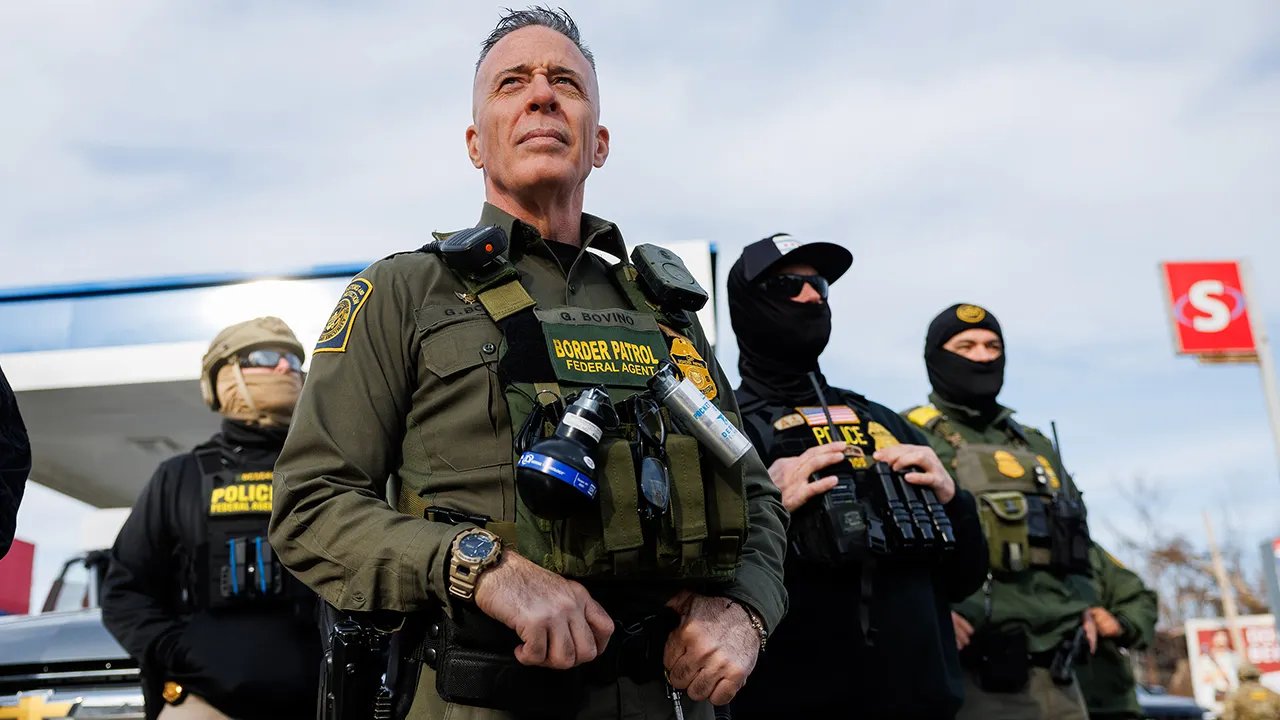
NEWYou can now listen to Fox News articles!
Border Patrol commander Gregory Bovino, the face of the Trump administration’s campaign to arrest and deport criminal illegal immigrants, will be leaving Minnesota, along with some border agents, amid violent, and sometimes deadly, clashes between federal authorities and anti-ICE agitators.
Bovino and an unspecified number of U.S. Border Patrol agents will be leaving the state as soon as Tuesday, multiple federal sources told Fox News.
«Chief Gregory Bovino has NOT been relieved of his duties,» DHS Assistant Secretary Tricia McLaughlin later wrote on X. «As @PressSec stated from the White House podium, @CMDROpAtLargeCA is a key part of the President’s team and a great American.»
The news came the same day that President Donald Trump announced that he would be deploying border czar Tom Homan to take point in Minnesota. White House Press secretary Karoline Leavitt on Monday defended Bovino, calling him a «wonderful man, and he’s a great professional.»
DEPUTY AG DEFENDS ICE AGENTS IN MINNESOTA, SAYS OFFICERS ARE ‘ACTING HUMANELY’
People yell at U.S. Border Patrol Cmdr. Gregory Bovino and other agents while they stop at a gas station. Bovino will be leaving Minnesota amid contentious immigration enforcement operations, sources told Fox News. (Armando L. Sanchez/Chicago Tribune/Tribune News Service via Getty Images)
«He is going to very much continue to lead Customs and Border Patrol, throughout and across the country,» Leavitt said. «Mr. Homan will be the main point of contact on the ground in Minneapolis to follow up.»
Fox News Digital has reached out to the Department of Homeland Security (DHS) and U.S. Customs and Border Protection (CBP).
Before leading operations throughout the country, Bovino was chief of the Border Patrol’s El Centro Sector in Southern California, which is responsible for 70 miles of the U.S.-Mexico border and covers Imperial and Riverside counties. He will return to his previous post where he will resume his previous duties.
Bovino’s «commander of at large operations» position was created by DHS and took him outside of Border Patrol command.
Bovino has been criticized by opponents of Trump’s deportation campaign over tactics used by federal immigration authorities to apprehend criminal illegal aliens.
California Gov. Gavin Newsom, a harsh critic of the Trump administration’s crackdown on illegal immigration, praised news of Bovino’s impending departure from Minnesota.
TRUMP CONFIRMS FEDERAL REVIEW OF MINNEAPOLIS SHOOTING THAT KILLED NURSE: ‘REVIEWING EVERYTHING’

A Border Patrol agent chatted with a protester in Minnesota on Thursday, finding common ground over military service. (Brendan Gutenschwager via Storyful)
«Gestapo Greg is out. Keep the pressure up. It’s working,» he wrote on X.
In another post, he called for the firing of Homeland Security Secretary Kristi Noem and White House deputy chief of staff Stephen Miller.
News of Bovino’s departure came after a deadly weekend in which 37-year-old nurse Alex J. Pretti was fatally shot by a U.S. Border Patrol agent. Pretti, who was armed with a handgun, was filming federal officers on a Minneapolis street.
Authorities said Pretti was resisting disarmament when he was shot.
At the time, authorities were targeting Jose Huerta-Chuma, an illegal immigrant with a criminal history including domestic assault for intentional conflict with bodily harm, disorderly conduct and driving without a valid license.
Trump said Homan will report «directly to me» and will help lead the U.S. Immigration and Customs Enforcement (ICE) operations in Minneapolis and St. Paul.
«I am sending Tom Homan to Minnesota tonight. He has not been involved in that area, but knows and likes many of the people there. Tom is tough but fair, and will report directly to me,» Trump wrote on his Truth Social platform.
CLICK HERE TO DOWNLOAD THE FOX NEWS APP
«Separately, a major investigation is going on with respect to the massive 20 Billion Dollar, Plus, Welfare Fraud that has taken place in Minnesota, and is at least partially responsible for the violent organized protests going on in the streets,» he continued.
border security,minnesota,us
INTERNACIONAL
Represión en Irán: el régimen detiene a manifestantes heridos en los hospitales como parte de la represión
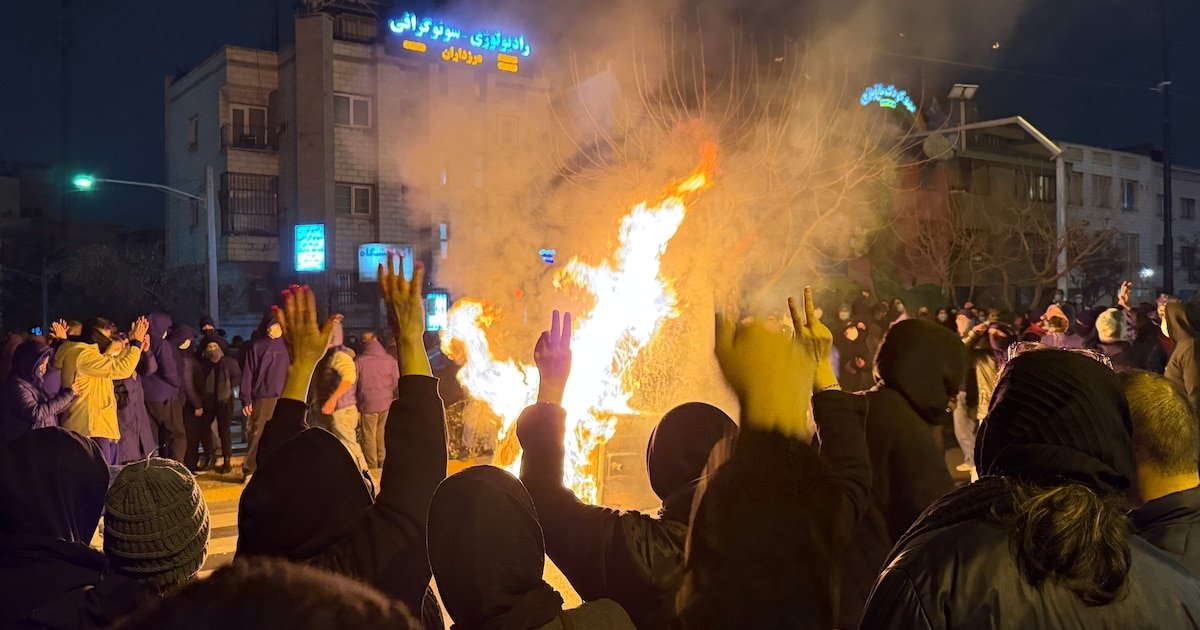
Miles de manifestantes heridos en las recientes protestas en Irán habrían sido retirados de hospitales y detenidos por fuerzas de seguridad, según denunció la relatora especial de las Naciones Unidas sobre Irán, Mai Sato. Esta práctica constituiría una violación grave del derecho a la atención médica, protegido por la legislación internacional.
La experta, que también es profesora en la Universidad Birkbeck de Londres, declaró que recibió múltiples informes sobre el retiro forzoso de pacientes en hospitales de diversas provincias. En declaraciones a Reuters, Sato explicó que familias acudieron a los hospitales al día siguiente de los incidentes y no encontraron a sus seres queridos. Además, señaló que las familias enfrentan demandas de entre USD 5.000 y USD 7.000 para recuperar los cuerpos de sus familiares fallecidos, una carga económica significativa ante las dificultades actuales en el país.
El grupo de derechos humanos HRANA, con sede en Estados Unidos, estima que la cifra de muertos vinculados a las protestas asciende a 5.937, incluyendo 214 miembros de las fuerzas de seguridad. Por su parte, las autoridades iraníes reconocen oficialmente 3.117 fallecidos. Tanto Sato como Reuters aclararon que no han podido verificar de forma independiente estos datos, aunque la relatora considera que las víctimas mortales superan ampliamente las cifras oficiales.
Miembros del personal sanitario en Irán, entrevistados bajo condición de anonimato por Reuters, confirmaron que las fuerzas de seguridad han irrumpido en hospitales, retirando a pacientes y buscando los registros de manifestantes heridos para proceder a su detención. Un médico de la ciudad de Rasht relató que, tras ser operados por heridas de bala, decenas de pacientes fueron sacados por la Guardia Revolucionaria sin que se sepa su paradero. Una enfermera y dos médicos en hospitales de Teherán aseguraron que agentes de la Guardia y la policía revisaron habitaciones en busca de manifestantes heridos.
Estas acciones han disuadido a la población de buscar atención médica, por temor a ser arrestados, lo que representa un riesgo para la vida y la salud de los heridos. Sato advirtió que esta conducta vulnera el principio de neutralidad médica, protegido por los Convenios de Ginebra, que garantizan la protección de doctores, hospitales y pacientes para asegurar una atención imparcial.
Según informes citados por Sato, las fuerzas de seguridad han disparado a manifestantes en el pecho y la cabeza en las 31 provincias del país, apuntando a órganos vitales y haciendo uso de la fuerza letal de manera indiscriminada. El derecho internacional solo permite este tipo de acciones como último recurso y de forma proporcionada. Sato afirmó que estos hechos podrían constituir “muertes ilegales y ejecuciones arbitrarias”, además de alertar sobre un aumento de lesiones oculares causadas por perdigones en las protestas recientes.
La relatora también denunció que las exigencias de pago para la entrega de cadáveres agravan el sufrimiento de las familias, al combinar el dolor con la extorsión. Señaló que el intento de las autoridades iraníes de calificar a los manifestantes de “terroristas” o “alborotadores” busca justificar la represión de lo que describió como un movimiento local y espontáneo.

Al menos 240 confesiones forzadas han sido transmitidas recientemente por la televisión estatal de Irán, según denunció un grupo de derechos humanos. Los videos presentan a los arrestados confesando crímenes que incluyen violencia contra miembros de las fuerzas de seguridad, colaboración con opositores o potencias extranjeras y la simple interacción con cuentas críticas en redes sociales.
Diversas organizaciones, entre ellas Amnistía Internacional, han calificado estas grabaciones de “videos de propaganda” y han denunciado que las confesiones serían obtenidas bajo tortura física y psicológica. Se ha reportado que los detenidos son obligados a firmar declaraciones que no pueden leer y a admitir delitos que no cometieron, incluidas acciones pacíficas de disenso.
El jefe del poder judicial iraní, Gholamhossein Mohseni Ejei, ha encabezado personalmente algunas de estas interrogaciones televisadas. Según Roya Boroumand, directora del Centro Abdorrahman Boroumand para los Derechos Humanos en Irán con sede en Estados Unidos, estas confesiones cumplen varias funciones: fabricar legitimidad política, presentar a los manifestantes como agentes violentos de intereses extranjeros y desincentivar la disidencia. Boroumand afirmó que este tipo de prácticas se utilizan para humillar y desacreditar a los opositores, además de recordar a la sociedad el alto costo de desafiar al Estado.
Las protestas, originadas por motivos económicos, se transformaron en un movimiento masivo contra la república islámica, especialmente a partir del 8 de enero, cuando las autoridades impusieron un apagón de internet. Miles de personas murieron durante la represión de las manifestaciones, según datos de la organización Human Rights Activists News Agency (HRANA), que también contabilizó más de 41.000 arrestos y 240 confesiones forzadas durante el operativo.
El Centro para los Derechos Humanos en Irán (CHRI) ha calificado la escala actual de confesiones forzadas como sin precedentes, subrayando que estas declaraciones suelen ser la única prueba utilizada para condenar, incluso en casos donde se impone la pena de muerte. Boroumand explicó que al exhibir a los disidentes confesando actos como “colusión con potencias extranjeras”, el Estado legitima la represión con el argumento de proteger la seguridad nacional y usa la confesión televisiva como prueba de culpabilidad para justificar castigos severos.
(Con información de Reuters y AFP)
Civil Conflict,Demonstrations,Domestic Politics,Riots,Middle East,Government / Politics,Civil Unrest
INTERNACIONAL
Iranian security forces gun down amateur boxer as father searches morgues for missing son: source
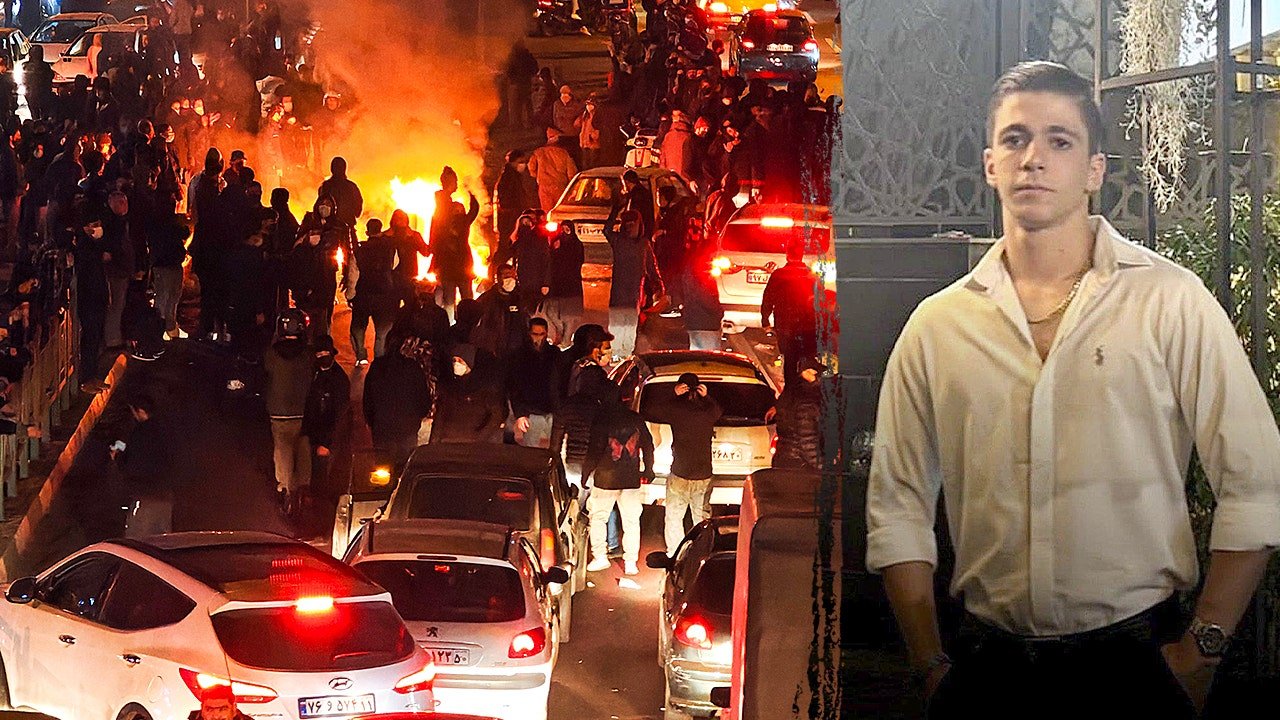
NEWYou can now listen to Fox News articles!
An Iranian amateur boxer was shot and killed by Iranian security forces during ongoing anti-regime protests near Tehran, and his father spent a week searching before identifying his body in a black body bag.
Harrowing footage circulating online shows his distraught father desperately searching among piles of bodies covered with black body bags, crying out for his missing son.
Sepehr Ebrahimi, 19, was killed on Jan. 11 in the Andisheh area, approximately 19 miles west of Tehran’s city center, according to Iranian opposition sources.
«Sepehr was shot and killed in Tehran,» Ali Safavi, a senior official with the National Council of Resistance of Iran (NCRI), told Fox News Digital.
IRAN LOCKS NATION INTO ‘DARKER’ DIGITAL BLACKOUT, VIEWING INTERNET AS AN ‘EXISTENTIAL THREAT’
Sepehr Ebrahimi was a 19-year-old amateur boxer. His father spent a week searching for his body after he was killed. (Simay Azadi/National Council of Resistance of Iran (NCRI))
Video shared on social media, which was viewed by Fox News Digital, shows Ebrahimi’s father calling out his son’s name as he searches a warehouse filled with unidentified bodies following a violent crackdown on demonstrators.
«My dear Sepehr, where are you?» the father can be heard crying. At one point, he shouts, «Damn Khamenei. They have killed the children of so many people. You killed so many young people!»
According to Safavi, Ebrahimi was shot with live ammunition by Iran’s security forces during protests against the clerical regime.
His family spent an agonizing week searching through morgues, hospitals and detention facilities before finally identifying his body among piles of corpses, also shown in the viral footage.
KHAMENEI CALLS TRUMP A ‘CRIMINAL,’ BLAMES HIM FOR DEADLY PROTESTS SWEEPING IRAN

Iranians attend an anti-government protest in Tehran, Iran, Jan. 9, 2026. (UGC via AP)
The killing comes amid ongoing demonstrations across Iran, as anger continues to simmer over political repression, economic hardship and human rights abuses.
Ebrahimi’s death has also renewed attention on the case of another Iranian boxer, Mohammad Javad Vafaei Sani, who is on death row.
Vafaei Sani, now 30, is a champion boxer who was arrested in 2020 for participating in nationwide pro-democracy protests.
Iranian authorities accused him of supporting the opposition group the People’s Mojahedin Organization of Iran (MEK).
He has spent five years in prison, during which he has reportedly been tortured and held in prolonged solitary confinement, according to rights organizations.
IRANIAN SOLDIER SENTENCED TO DEATH FOR REFUSING TO FIRE ON PROTESTERS DURING NATIONWIDE UNREST
In 2023, more than 100 human rights experts and international organizations sent a letter to U.N. High Commissioner for Human Rights Volker Türk, urging urgent intervention to stop Vafaei Sani’s execution.
His death sentence echoes the case of Iranian wrestling champion Navid Afkari, who was executed in September 2020.
Meanwhile, the death of Ebrahimi and others come as Iran’s protest-related death toll continues to rise.
According to the Human Rights Activists News Agency (HRANA), at least 6,126 people have been killed since the start of the latest wave of protests.
CLICK HERE TO DOWNLOAD THE FOX NEWS APP
HRANA also reported that 214 government-affiliated forces and 49 civilians have also been killed, while more than 17,000 deaths remain under investigation.
iran,middle east,ali khamenei,world protests,persecutions,boxing

 POLITICA2 días ago
POLITICA2 días agoMientras Quilmes arde, Mayra Mendoza viaja a Bogotá para defender a Cristina Kirchner

 POLITICA1 día ago
POLITICA1 día agoJuan Grabois contó que le pidieron plata para ir a un programa de C5N

 POLITICA2 días ago
POLITICA2 días agoLa apuesta del Gobierno por la “Argentina Week” en Nueva York: los funcionarios y líderes de sectores estratégicos que asistirán







